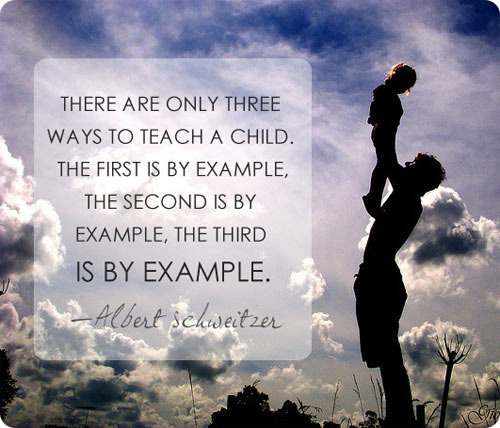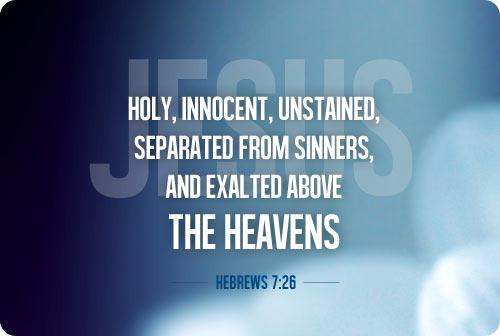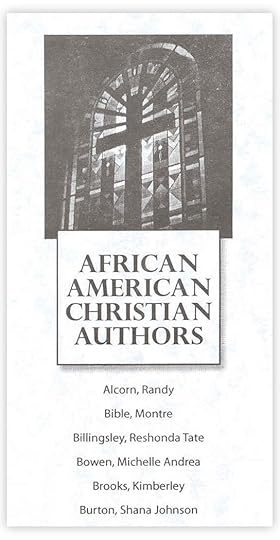Randy Alcorn's Blog, page 193
September 4, 2013
FamilyLife, Redefining Marriage, and the Most Loving Thing We Can Do
 After the Supreme Court declared DOMA to be unconstitutional this past June, Dennis Rainey shared a letter about FamilyLife’s controversial radio broadcast on this issue. He wrote, “In more than four decades of ministry I’ve never seen the overwhelming amount of feedback, both positive and negative, to our special radio program two weeks ago concerning the DOMA decision.” (DOMA is the 1996 Defense of Marriage Act, which defined legal marriage in federal law as being only between one man and one woman). After sending out an email advertising their upcoming broadcast, FamilyLife received numerous responses taking issue with their stance:
After the Supreme Court declared DOMA to be unconstitutional this past June, Dennis Rainey shared a letter about FamilyLife’s controversial radio broadcast on this issue. He wrote, “In more than four decades of ministry I’ve never seen the overwhelming amount of feedback, both positive and negative, to our special radio program two weeks ago concerning the DOMA decision.” (DOMA is the 1996 Defense of Marriage Act, which defined legal marriage in federal law as being only between one man and one woman). After sending out an email advertising their upcoming broadcast, FamilyLife received numerous responses taking issue with their stance:
“…I strongly disagree with this email that you sent out. What about love and acceptance and equality for everyone? I hope one day that people will stop being judged for who they love."
“I celebrated the Supreme Court rulings yesterday with my amazing gay Christian friends. I felt tears well up in my eyes because this represents justice to me. The assumption that because I am a Christian, I must be upset about today, took me by surprise. These emails do not represent my heart and my convictions, so I have unsubscribed.”
“There appears to be passionate and growing support for so-called ‘same-sex marriage’ among those who profess faith in Christ,” Dennis wrote. Still, there were others who appreciated the email and broadcast:
"I pray every day for this country and our president. Things sure have changed in a short time in our country. Though I am saddened, I know God is in control and I ask God to be a lamp unto my feet each day. I pray for a grass root change. Thank you for being strong and courageous in times like this. "
Here are some quotes from Dennis’s letter, followed by my thoughts.
Who would have thought that a ministry that teaches God’s design for marriage and family could be labeled, “bigoted”? That the idea that God created marriage as a lifelong covenant relationship between a man and a woman would now be decried as “hate speech”? Human speculation now trumps divine decree.
The Bible makes clear that God’s very best for all of our lives involves our purity and obedience to Him. This includes forsaking all sexual sins, heterosexual and homosexual, outside of the marriage covenant between a man and a woman. If this message is “hate speech,” as it is called by some responders, then the Bible is hate speech, and no one can preach the whole Bible without being guilty of hate speech.
As I feel sorry for someone who will never walk again, I feel very sorry for those who want to be married, but have no desire to be married to the only ones God permits them to marry, those of the opposite gender. But my sorrow and empathy do not negate the objective teaching of Scripture. It is never loving to mislead people into thinking that God permits what He does not, or that it is in our best interests to try to be happy by doing whatever we desire to do.
The Supreme Court may be the highest court in the land, but it is asserting itself above the ultimate authority of all creation. The Supreme Court is tampering with the divine DNA of the most basic units of civilization—marriage and family. Like every civilization that has gone before us, I’m afraid our country is on a path to learning that when we ignore God and His word, we invite His displeasure.
 It concerns me when those who profess to be Christians simply redefine what it means to be a Christian to accommodate whatever the culture currently believes. The Bible is no longer their authority, but the current and ever-changing wind of social preference. Teaching that the commandments of God are written in pencil, they buy their social popularity by passing out erasers.
It concerns me when those who profess to be Christians simply redefine what it means to be a Christian to accommodate whatever the culture currently believes. The Bible is no longer their authority, but the current and ever-changing wind of social preference. Teaching that the commandments of God are written in pencil, they buy their social popularity by passing out erasers.
Even where society legalizes homosexual marriage, this does not mean God recognizes it as a marriage. If society legalized marriage between an adult male and a six-year-old girl, God would not recognize it as marriage, or change His judgment that it’s perverse. If society legalized marriage between a man and his sister, this would not thereby change God's revealed will concerning the sin of incest. Hebrews 13:4 tells us, “Let marriage be held in honor among all, and let the marriage bed be undefiled, for God will judge the sexually immoral and adulterous.”
To give special status or rights to those choosing the homosexual lifestyle is to approve and endorse that behavior, and inevitably to spread it. To do so is morally wrong. It is also the worst possible thing we can do for homosexuals, who need to hear that in Christ there is the way out of bondage to sin. They do not need to be encouraged to plunge deeper into it.
We have apparently lost some friends because we continue to uphold the definition of marriage found in Genesis. No one likes to lose a friend. It’s even harder when the friend is angry with you. But there are times when your convictions may collide with the views of a friend. And in those moments, you have to decide where you stand.
As for me and my house, we’re standing with what we believe the Bible clearly teaches.
I appreciate Dennis Rainey’s words here. Many people have been angry at me because I don’t believe I have the wisdom or power to revise the nature and commands of God. I do not trust the current beliefs of my culture more than I trust God.
It may appear to be judgmental and unloving for a Christian to believe that only a man and a woman can enjoy a true marriage as defined by God. But like Dennis and the rest of the FamilyLife staff, I really do believe the Bible, and therefore I can't hold to these positions no matter how passionately people may make a case for them.
The truth is that Jesus condemned lust, both heterosexual and homosexual (Matthew 5:28). In Matthew 19:9 Jesus condemned “porneia,” a broad word that covers all sexual sins condemned in the Old Testament, and others not addressed there. Greek scholars say this includes prostitution, bestiality, incest, child molesting, homosexual relations, and all heterosexual relations outside of marriage. So Jesus really did speak against homosexual relations without using that exact term.
Likewise, Jesus’ apostles, who wrote the God-breathed New Testament Scriptures, consistently spoke against homosexual behavior right along with other sins (Romans 1:26-27; 1 Corinthians 6:9; 1 Timothy 1:9-10; Jude 7).
When it comes to the issue of being “judgmental”, people commonly cite Matthew 7:1-2:
“Do not judge, or you too will be judged. For in the same way you judge others, you will be judged, and with the measure you use, it will be measured to you.”
Yes, Jesus is saying, “Don’t judge.” But the context is king when we’re interpreting Scripture—and in verses 3-5 He goes right on to say:
“How can you say to your brother, “Let me take the speck out of your eye,” when all the time there is a plank in your own eye? You hypocrite, first take the plank out of your own eye, and then you will see clearly to remove the speck from your brother’s eye.”
It’s clear that “Judge not” does not mean you can’t see a speck in your brother’s eye or that in seeing it you have no responsibility to help your brother remove it. On the contrary, He’s saying yes, see that speck in your brother’s eye, but take the log out of your eye first so you can help him.
We are not to go around condemning people and making ourselves seem superior to them. But at the same time, we’re to recognize what God says in His Word. If God’s Word says that adultery is a sin, and He clearly does, I am not being judgmental if I say, “If I committed adultery I would be sinning.” Likewise, without a judgmental or self-righteous spirit, I can look at a person committing adultery and conclude that they are sinning. I’m simply believing what Scripture says.
If I have a relationship with that person, I need to go to them and say, “Because I love you, for your own sake I urge you to repent and turn to Christ.” You might say, “Now that’s condemning them and judging them.” No—that’s believing what God says is true and then trying to help the person because sin is not in their best interest. It can't be. It never has been and never will be.
The truth isn’t something we should protect people from—it’s something God gives for our protection. We owe it to each other to do what Scripture commands: "Speak the truth in love" (Ephesians 4:15).
I’d encourage you to read Dennis’s full letter, which includes four ways FamilyLife is working and reaching out in the days ahead.

Related Resources
Blog: Are homosexual sins worse than other sins?
Q&A: I am a Christian homosexual who has always been in a monogamous relationship. Why can’t this be as acceptable as a heterosexual married couple committed to only one person?
Book: The Grace and Truth Paradox
Rings photo credit: michaeljzealot via photopin cc
September 2, 2013
What is a father’s primary responsibility?
In this video interview with EPM staffer Julia Stager, we share some thoughts on a father’s primary responsibility to his children:
Randy:
I think a father’s primary responsibility is to show his children what God is like. Your daughters and your sons need to see what true fatherhood is, and you as a father will be the one who shows them what God is like (that is, if you are faithful to show them what God is like). When your children hear the word “Father” in relationship to God, they will draw conclusions, truly or falsely, about what He is like based on what they think of you.
 Deuteronomy 6 says, “These commandments I give you today are to be upon your heart.” So first, the father has to have this knowledge of God in his own life. Then it goes on to say what he’s supposed to do in relationship to his children (keep in mind that if a father doesn’t really have it in the inside, he can’t give it to his children): “Impress them [these commandments] on your children. Talk about them when you sit at home, when you walk along the road, and when you lie down and when you get up.” Then it says, “tie them as symbols, put them around your house.”
Deuteronomy 6 says, “These commandments I give you today are to be upon your heart.” So first, the father has to have this knowledge of God in his own life. Then it goes on to say what he’s supposed to do in relationship to his children (keep in mind that if a father doesn’t really have it in the inside, he can’t give it to his children): “Impress them [these commandments] on your children. Talk about them when you sit at home, when you walk along the road, and when you lie down and when you get up.” Then it says, “tie them as symbols, put them around your house.”
So what Scripture is saying is impress them upon your children. And that word impress really means “engrave.” It’s like children are wet cement and with your finger you are writing in it. As you know if you’ve done this with wet cement (which as a child you weren’t supposed to do, but I did!) it becomes permanent. That’s how you engrave into your children.
But the great thing is, this engraving is done causally as life goes on. It’s not just during family devotions. Family devotions are great, but it’s more than that. It’s as you walk in the way.
Julia:
Absolutely. As a father, you’re living in the same household as your children, and they are observing you at all times. Just like you’re saying, it’s not that you only have a responsibility during certain times of the day, but during all times of the day.
Randy:
Exactly. One of the ways that fathers can model godliness to their children is to apologize and ask forgiveness. Yes, God never has to apologize to us and ask our forgiveness. But we need to model what that’s like in our Christian lives so that our children can look at us and see us admitting we’re wrong. That’s part of being Christlike.

Related Resources
Blog: The Importance of Fathers
Article: The Father as Model and Mentor
Books: Heaven for Kids, The Resolution for Men
Background photo credit: Lost Control via photopin cc
August 30, 2013
Incredible Pictures from the Astronomy Photographer of the Year Competition
 “The heavens declare the glory of God” (Psalm 19:1). So too do the accomplishments of mankind whom He created in His image, and made to reflect his glory. Even people who don’t recognize God build telescopes, explore the heavens and take magnificent photos such as these. Whether or not you acknowledge God, your creativity, ingenuity, eye for beauty and technical skills are all gifts from His hand.
“The heavens declare the glory of God” (Psalm 19:1). So too do the accomplishments of mankind whom He created in His image, and made to reflect his glory. Even people who don’t recognize God build telescopes, explore the heavens and take magnificent photos such as these. Whether or not you acknowledge God, your creativity, ingenuity, eye for beauty and technical skills are all gifts from His hand.
If you believe in Christ, look at these photos and worship Him (thanks to my good friend Diane Meyer who, knowing my love for astronomy, sent me this link). If you don’t believe in Him, consider whether these testify to a world and a universe and people created by design, or randomly occurring and evolving over billions or millions of years. I once believed the latter, because that’s what I was taught. When I heard the gospel as a teenager, everything changed.
And after forty years of knowing Him, I would never go back to the hollowness of what I once believed.

Related Resources
Blog: Eagerly Anticipating the New Heavens to Come
Video: When did you put your faith in Christ?
Book: The Promise of Heaven
Photo credit: European Southern Observatory
August 28, 2013
Will God take care of our children?
A lot of people have been experiencing anxiety due to shootings. Will God always take care of our children?
In this video and the following transcript, I share some thoughts:
I think when you look at what’s happening at schools and life in general, and with children being abducted, these are things that every parent is going to ask. I really wish I could give an answer that says, “Yes. God will always take care of your children and protect them from all harm.” But that’s not reality. That’s not the world we live in. We live in a world that is under the curse.
 I think it is possible for people to end up blaming God when bad things happen in their own lives and to their children because they’ve had false expectations, as if God promised nothing bad will ever happen to them or their child.
I think it is possible for people to end up blaming God when bad things happen in their own lives and to their children because they’ve had false expectations, as if God promised nothing bad will ever happen to them or their child.
What God does promise is that He’s bigger than all the bad things that can ever happen to us. He also promises that He loves children. Look at Jesus—the way He took children onto his lap and said, “Unless you become like one of these, you won’t enter the kingdom of God.” He said to His disciples, “Allow the children to come to me.”
So Scripture clearly teaches God’s love for children, His sovereignty, and His ability and commitment to cause all things to work together for good. But that’s not the same as promising nothing bad will ever happen to our children.

Related Resources
Blog: Why does God take some people to heaven so young?
Resource: What does Romans 8:28 really mean?
Book: 90 Days of God's Goodness
Photo credit: Ben Earwicker - Garrison Photography, Boise, ID, www.garrisonphoto.org
August 26, 2013
Did Jesus have a sin nature?
 First, we need to define sin nature. The “nature” of a person or object is commonly thought of as its essential qualities or attributes; that which makes it what it is. Therefore if something has a “sin nature” sin is a defining attribute of that thing.
First, we need to define sin nature. The “nature” of a person or object is commonly thought of as its essential qualities or attributes; that which makes it what it is. Therefore if something has a “sin nature” sin is a defining attribute of that thing.
Hebrews 4:15 tells us Jesus is “without sin.” Since He is without sin, sin cannot be one of His essential qualities or attributes. You cannot have a sin nature, and be without sin. Christ’s nature is not sinful. Hebrews also tells us about Jesus’ pure nature. He is “holy, innocent, unstained, separated from sinners, and exalted above the heavens” (Hebrews 7:26).
Part of the misunderstanding is that a human nature is synonymous with a sin nature, or that one must have a sin nature to be genuinely tempted. Both points are wrong. The proof is Adam was fully human, and though he had no sin nature he was genuinely tempted. So the Last Adam, Jesus, had no sin nature and was genuinely tempted, the difference being that Adam sinned and Jesus didn’t.
There have always been cults, such as the Christadelphians, that teach Jesus had a sin nature. However, some mainstream Christians see the sin nature of Jesus as necessary because He was “like us in every respect,” a “real man” and “tempted in all ways like us,” as Hebrews says (Heb. 2:17-18; 4:15). So how could these verses be true if He didn’t have a sin nature?
Some argue that the sin nature is passed on to a child through the father, not the mother. They point out that we are all said to have sinned in Adam, not in Eve (Romans 5:12), even though Eve sinned first. Humans have 23 pairs of chromosomes: one member of each pair inherited from the mother and the other from the father. This suggests that when the Holy Spirit overshadowed Mary (Luke 1:35), and Jesus was conceived in His mother, God miraculously supplied the other 23 chromosomes to make the matched pair with Mary’s. These would normally have come from a human father.
If it is true that the sin nature is passed on by the father (there is no biblical proof of this, it is only a supposition based on the human race sinning in Adam), in the case of Jesus there was no human father to pass it on. This might be (we can’t be sure, but it’s possible) what allowed Him to be the only human being conceived since Adam and Eve’s fall not to have a sin nature.
Theologian Bruce Ware argues for this position:
Notice, it is the sins of the fathers visited upon the third and fourth generation. Notice, when Adam and Eve sinned in the garden, Eve sinned first and Adam is held accountable for it. And notice the virgin birth of Christ. This accomplishes, in my judgment, at least two things. One, he was fully God and fully man. So the Holy Spirit took the place of a human father and brought about this conception so that the one born would be called the Son of God (Lk 1:35). The second thing was, it prevented the sinful line of Adam from being passed on from the father. Every other human being born, you and me included, had a dad; at least at the point of conception there was a human father involved and sin is passed on. Not with Christ; there was no human father.
Karl Barth taught that Jesus had a FALLEN nature, as all people do, but not a SIN nature. But that’s a distinction hard to make. Obviously He lived under many of the effects of the Fall, including stress and suffering and mortality, but that’s not the same as having a fallen nature.
This is a good article about the extent of Jesus’ humanity.
Note from Randy: Julia doesn’t think there is a strong biblical argument for the idea that the sin nature is passed on through the father. I asked her to explain why, and she makes some very good points to consider. Here’s what she says:
I don’t believe this view is correct for a couple reasons. First, there’s no biblical evidence that male chromosomes are especially sinful or are the source of sin nature while female chromosomes are not. Would not then a woman born of a man only have tainted DNA to pass on? Or is it that females have sin in our entire DNA except our gametes? And how would that DNA be protected or separated from the sinful DNA? Isn’t it all just very odd? Sin isn’t a physical trait; it’s a spiritual state. And then there’s the question of female cloning (a cloned female would be sinless? Or is there sin nature in female chromosomes after all?) Not to mention the difficulties in defining “male” in light of sex chromosomal disorders/mutations, hermaphrodites, etc.
Romans 5:12 doesn’t answer how sin spread from one man to the rest of humanity, just that it did. I believe that being in Adam’s family (i.e. human) is what causes death to be passed on to all – fallen men and women beget fallen men and women. A few verses later Romans 5:18 makes the same point in a different way, explaining the spread of sin like a much more instantaneous state-of-all-humanity event (by one trespass all people are in condemnation) as opposed to the continual seeding of sin by fathers into humanity (see also 1 Cor. 15:21-22). Also, Ephesians 2:3 says we were all by nature children of wrath, not by our “father’s nature.” Granted, this is an argument from silence, but it makes the point that believing sin is passed through the father is foreign to Scripture. Additionally, there is no Scripture pointing to the virgin birth as an explanation of Jesus’ sinlessness. He’s not sinless because He was born of a virgin; He’s sinless because He’s the God-man.
The virgin birth shows us the beauty of God taking the initiative of incarnating Himself as the means of salvation for mankind; it’s the beginning of Jesus’ earthly life that would culminate in overcoming death and defeating sin while being like us in every respect.
Though nothing in Scripture proves the “sin is from the father” theory explicitly wrong, there is equally nothing in Scripture proving it right, and I feel fine not believing in something the Bible doesn’t teach, especially when it doesn’t really make sense.

Related Resources
Blog: Sinless Perfectionism: Are we no longer capable of sinning as Christians?
Resource: What Would Jesus Do…Or What DID Jesus Do?
Background stock photo credit: Cernasite via sxc.hu
August 23, 2013
Biola University President Apologizes to Prolife Student and Takes a Stand
 Some of you are aware of the events at Biola University in May. A fourth year nursing school student, Diana Jimenez, became aware of the truth about abortion, and was so moved and convicted that she sensed God’s leading to publicly display photos of aborted babies on Biola’s campus.
Some of you are aware of the events at Biola University in May. A fourth year nursing school student, Diana Jimenez, became aware of the truth about abortion, and was so moved and convicted that she sensed God’s leading to publicly display photos of aborted babies on Biola’s campus.
After she refused to stop displaying the photos, a campus security guard threatened to have her arrested, and this was caught on video. Subsequently, the director of the nursing program ordered her staff not to write letters of recommendation on Diana’s behalf, something which would likely stop her nursing career dead in its tracks.
Because of my love for Biola, where I spoke for a week last year, and my respect for Biola’s president Barry Corey, I contacted him in June. No doubt, many others did as well, some expressing similar and others radically different opinions than mine.
Knowing his heart from when I spent time with him, I wrote Barry a lengthy letter in which I shared arguments for students at a Christian university to be able to publicly display photos of aborted children without retaliation. If anything, such students, and a future nurse in particular, should be commended for being willing to speak up for those who cannot speak for themselves (Proverbs 31:8-9).
I wrote about American college presidents who were outspoken about the injustices of slavery, and who God used to inspire students and faculty to help rescue slaves through the Underground Railroad. I told him that I believe pastors and Christian leaders and college administrators and faculty need to lead the way in encouraging our young people to come to grips with and boldly confront the harsh and sickening reality of what abortion really is. I provided a link to a website started by young people, dedicated to not only telling but also showing their own generation, college students included, the truth about abortion.

I also told Barry, and want to tell readers of this blog, that I believed this had happened at Biola in the providence of God, since at most “Christian” universities a small percentage of the administration, faculties or students are prolife in any meaningful sense. Indeed, as unthinkable as it is from a biblical perspective, many of them favor abortion rights, which means the “right” to kill children before they are born. (I know this firsthand. I have spoken on some of their campuses and had the conversations.)
Without any defensiveness, Barry Corey graciously read and took the time to give a heartfelt and lengthy response to my letter. It’s not for me to publish his response, but I can say that I deeply appreciated what he had to say.
I could only rejoice when I received a public letter regarding this issue, one posted on the Biola website, written by Barry on August 20. Even though he wasn’t involved in the incident or that misguided letter to the nursing faculty, he apologized personally to Diana Jimenez on behalf of the university and apologized publicly as well.
For a summary of the events at Biola, and key quotes from Barry Corey’s letter, I highly recommend this excellent blog by Jill Stanek (thanks, Jill), which details some other very significant things I haven’t said:
Biola president Dr. Barry Corey, pictured right, has issued a public letter of apology for retaliatory actions staff members of his Christian university took against pro-life student Diana Jimenez in June for showing graphic images of abortion on campus:
For actions on our part that were perceived to be heavy-handed and retaliatory, I have apologized to her and stand by this apology publicly. I acknowledge and regret our errors, and steps have been taken to correct them….
In so many ways, Diana is the kind of student with the deep Christian convictions I hoped to see when I came to Biola six years ago. In her convictions about saving the unborn, she represents what Biola is about—the desire to speak up against injustices that break the heart of God. Like Diana, Biola is and has been passionately pro-life.
A campus security guard was caught on video threatening to have Jimenez arrested, and the director of the nursing program, Dr. Susan Elliott, ordered her staff not to write letters of recommendation on Jimenez’s behalf.
Going a step further, Dr. Corey outlined in his letter a plan to educate all Biola students via the student newspaper, chapel services, and public displays on campus about the importance of showing the graphic reality of abortion.
In addition, Dr. Corey and his staff are working to ensure all Biola curricula is infused with pro-life teaching:
This year we are accelerating our work and adding leadership to our academic team for the specific purpose of making sure our stated values and theological convictions are evident in our curriculum and learning outcomes and of making changes where we see learning outcomes are not evident. This relates to the sanctity of life, as it is one of our six theological distinctives. We desire that each student graduating from Biola understands and can articulate the biblical message of the sanctity of human life, so that students demonstrate these values in their own communities….
We have begun to consider additional ways to emphasize the tragedy and trauma of abortion so that our students not only embrace the convictions those like Diana champion but also understand there’s help for them in times when they need it.
Dr. Corey’s letter brought tears to my eyes. It is a beautiful Christian example of how to respond when error is recognized and forgiveness and repentance are sought.
For the past seven weeks pro-life leaders John Ensor, M.Div., President, Passion Life Ministries; Scott Klusendorf, M.A., President, Life Training Institute; and Marc Newman, Ph.D., President, Speaker for Life – two of whom are Biola graduates – have been working with Biola to craft a better pro-life policy. As they wrote in a press release today:
Ultimately, the problem at Biola was not about the university’s statement of faith regarding the sanctity of human life. The real problem at Biola was that a fourth-year nursing student could complete that program, yet remain totally unaware of the grisly reality of abortion or the persuasive arguments that support a pro-life perspective. It took exposure to those images, displayed at a student-sponsored pro-life event which drew only a handful of participants, to awaken her to the need to rouse her fellow students to action. And if Diana’s ignorance of abortion was typical in Nursing, what about students in Music, Communication, English, or Biblical Studies?
The trio is hoping to work with Biola and other Christian universities on a larger plan:
We would like to see Biola, and other like-minded universities, take a further step to integrate an inter-disciplinary minor in Applied Bioethics to further equip and professionalize the next generation of pro-life advocates and ministry partners. Such a move takes time, but we are willing to work with Biola – or any interested Christian university – to create and implement such a minor. In fact, we already have a curriculum outlined.
I commend Dr. Corey and Biola for their examples of Christian maturity and the leadership role they are embarking upon among Christian institutions of high learning to stop the atrocity of abortion. I concur with Ensor, Klusendorf, and Newman:
Because of these extraordinary and unprecedented steps, we believe Biola deserves the whole-hearted support of the pro-life community. Few Christian universities take their Biblical convictions concerning life as seriously as does Biola. It is our fervent hope that these collective actions of confession and repentance will prove to anyone with doubts that Biola is a champion for Life. We ask for prayer and for reconciliation between Biola and the wider pro-life community. Our prayer is that God would empower us with a spirit of grace as we seek to work together toward our true task: to save the lives of unborn children created in the image of the God we serve.
One final note, according to the pro-life groups’ press release, several weeks ago the Biola administration overturned nursing Elliott’s directive.
I am also told Dr. Elliott has retired.

Related Resources
Blog: Biola University: A Place for Students to Nurture Their Faith
Blog: The Evidence Doesn't Lie: The Unborn Are Children
Book: Why ProLife?
August 21, 2013
How has God used stress in your life?
Nanci and I have definitely seen God use stress in our life. In this video, I share more:
Not that we wished for stress, because we never did. It came anyway. Certainly there was the stress of raising young children. We had two well-behaved little girls. But were they a handful? Sure, at times. You know how kids are. :) There’s the normal kind of stresses in life.
We found ourselves facing some things like my becoming an insulin-dependent diabetic. I have a disease that at times can have fairly serious symptoms. We’ve been able to live a normal life, but certainly there’s stress involved.
We had the stress related to my taking a stand on the abortion issue, in peaceful, non-violent disobedience at abortion clinics. I had the stress of seeing my picture on the front page of the Sunday Oregonian. Everybody was asking me, “What are you doing out there? You stand there with a Bible, and you’re reading outside of an abortion clinic?” I’ve had the stress of major lawsuits, and the stress of going to jail for a few days, being arrested seven times or so.
Those things took a toll on us. On the other hand, we really learned from them to say, “You know what? This is life in a world under the curse. One day this world will be delivered from the curse.” But it helped us to know that God has called us to do some things in life, and not all of them are going to be popular or easy.
 Some of the things that have created stress are things that we’ve chosen, and we felt God’s leading to do so. Other stressful things God has brought into our lives or allowed into our lives (or whatever terminology you want to use). The fact is, God is sovereign and has a purpose and an intention. He has used those things to bring about perseverance and character-growth, to help us learn joy, love, and dedication to our family and ministry.
Some of the things that have created stress are things that we’ve chosen, and we felt God’s leading to do so. Other stressful things God has brought into our lives or allowed into our lives (or whatever terminology you want to use). The fact is, God is sovereign and has a purpose and an intention. He has used those things to bring about perseverance and character-growth, to help us learn joy, love, and dedication to our family and ministry.
One of the stresses that Nanci and I found was the number of people who really questioned the choices that we made related to intervening for the unborn, even people at our own church. Some were wonderfully supportive; others felt we were doing the wrong thing. We learned that some of the stresses in life come from doing what’s unpopular. But at the end of the day, we had to practice what Peter wrote about—entrusting ourselves to a faithful Creator who judges justly (1 Peter 2:23). We had to say, let’s live our lives in the sight of the Audience of One and seek to please Him.
Realize that stresses can come. But in the end, God will use them to bring us into conformity to the image of Christ. God will also bring great good out of them—and in fact, Nanci and I can testify that He has brought great good out of the stresses in our own lives.

Related Resources
Blog: Trials, Trust and Growing Christ-like Character
Resource: How God Uses Stress for Our Good and His Glory
Book: Help for Women Under Stress
Photo credit: ajmac via sxc.hu
August 19, 2013
Randy’s Novel Dominion, Background Research, and a Story
 Randy’s second novel, Dominion, came as a semi-sequel to his very first, Deadline. The book allowed Randy to tackle the issues of racism and reconciliation as seen through the eyes of the African-American main character, Clarence Abernathy.
Randy’s second novel, Dominion, came as a semi-sequel to his very first, Deadline. The book allowed Randy to tackle the issues of racism and reconciliation as seen through the eyes of the African-American main character, Clarence Abernathy.
At 603 pages, it’s also one of his longer books and required an incredible amount of background research. Randy spent a lot of time with black men and women, relying heavily on their personal accounts and paying particular attention to the recurring stories he heard from them. He used thousands of notecards to jot down thoughts and ideas about the book. He also read at least 60 books by and about African Americans. Randy writes, “I asked God to give me insight, as it was way beyond me as a suburban white to write with a black viewpoint character. Very difficult, but very rewarding—hope I never forget what I learned.”
In this video, he shares more:
 When asked about what kind of response he’s received from the African-American community, Randy said, “I've found some are surprised to find out I'm actually white. One man wrote to me just to confirm that I was black, because he’d placed a bet on it! Then he wrote me back an hour later, before I’d been able to respond and said ‘Never mind, I checked on your website and saw your picture. You cost me fifty bucks!’” (Several years ago EPM was sent a copy of the bookmark partially pictured here, which lists African American Christian Authors. At the top of the alphabetical list was Randy’s name, mistakenly included.)
When asked about what kind of response he’s received from the African-American community, Randy said, “I've found some are surprised to find out I'm actually white. One man wrote to me just to confirm that I was black, because he’d placed a bet on it! Then he wrote me back an hour later, before I’d been able to respond and said ‘Never mind, I checked on your website and saw your picture. You cost me fifty bucks!’” (Several years ago EPM was sent a copy of the bookmark partially pictured here, which lists African American Christian Authors. At the top of the alphabetical list was Randy’s name, mistakenly included.)
While Randy was writing Dominion, several people gathered together more than once to pray not only for Randy’s strength and perseverance but also for the eternal impact it would have on people’s lives. God has faithfully answered those prayers hundreds and thousands of times over. Here’s a recent story we received:
Years ago, I was looking for garage sales as a last chance to stock up on books for the winter. I stopped at a house and scanned. There didn’t seem to be any books. As I was heading back to the car, I spotted a large thick trade paperback that had obviously been read by more than one person, titled Dominion. I don't buy romances and this didn't look like one so I bought it without even determining what it was about. Later, I picked it up to determine its genre and quickly saw that the story was based here or at least started in Gresham. I grew up in Portland so I just started to read still not knowing anything about the book. Not my normal MO. I became more and more deeply involved in a very short time. I fell in love with Clarence, Jake and Ollie. Obadiah, however, opened a new door for me and whupped me upside the head with a cast-iron frying pan. I gave myself to Jesus right then and there. I have since read the other two and am anxiously waiting to see Ollie converted. He is my second favorite character after Obadiah. I have since read countless of Randy's books including Heaven, Safely Home and Courageous. I've given them as gifts to friends and family.
In short, Jesus tapped me on the shoulder through Dominion and I am so very grateful. —K.H.
Stephanie
Eternal Perspective Ministries
This week, Dominion is part of our Ahh-gust Staff Picks (sale price $7.49, retail $16.99). EPM staff member Doreen writes, "Dominion opened my eyes to racial issues in a way I couldn't ignore and still think about years later."
All our staff picks are available at the discounted pricing until Friday, August 23, 11:59 p.m. PT. See more books.
August 16, 2013
What is the doctrine of immutability?
In this video and the following transcript, I discuss the question what’s the doctrine of immutability and why is it important?
Immutability, referring to God, means He does not change. He never changes. This is clearly taught in Scripture. You see it in Malachi 3:6, where He says, “I the Lord do not change.” We also see it in James 1:17 where it says, “the Father of lights with whom there is no variation or shadow due to change.” I think in both cases, part of the reason the Lord said it is to tell us, “You can count on Me. You can believe in my promises.”
 Suppose we believe that God is a god of love. Well, what if He changes? He used to be a god of love. Maybe He no longer is. Some people think that way. They say, “I think God used to love me. But He no longer does.” What if God used to be all-powerful and sovereign, but some day He becomes no longer sovereign?
Suppose we believe that God is a god of love. Well, what if He changes? He used to be a god of love. Maybe He no longer is. Some people think that way. They say, “I think God used to love me. But He no longer does.” What if God used to be all-powerful and sovereign, but some day He becomes no longer sovereign?
So in some ways, the doctrine of immutability and changeability, when it comes to God, is basic to all other doctrines. Because for them to be true, but not always true, would mean we couldn’t count on them. The fact that I can depend on God, as He is, to never change is so important.
Aren’t there examples in the Bible where God does change?
Yes. You have the passages in the King James Version and some other versions where it says that God “repented of what He was going to do.” We can ask, “God repented”? As humans we associate repentance with sin. So that’s not a good word, because it does appear to be saying God changed His mind. But God was being consistent with His promise and with His law.
For instance, God says, “I will bless you” in the book of Deuteronomy. And He also says, “I will curse you.” He says He will bless you if you do this, and curse you if you do this. So, when God intends to bring blessing on people, that’s if they honor Him. But when they choose to do the wrong thing, then He brings curses on them. It appears that God changed His mind—He was going to bless them, now He’s cursing them. But in reality God was consistent with His nature all along. He’s doing what He said He was going to do, and the human being is the one who changed and needs to repent.

Related Resources
Blog: Is Love God's Defining Attribute?
Resource: Knowing God by J. I. Packer, Chapter 1
Book: 90 Days of God's Goodness
August 14, 2013
Proof of Heaven and the Dangerous Downward Spiral of My-Visit-to-Heaven Books
 Dr. Eben Alexander’s Proof of Heaven has now been on the New York Times Bestseller List for 41 weeks and is estimated to have sold over two million copies. With a lot of discussion going on about the book, and after being asked several times what I thought of it, it seemed time to blog about it.
Dr. Eben Alexander’s Proof of Heaven has now been on the New York Times Bestseller List for 41 weeks and is estimated to have sold over two million copies. With a lot of discussion going on about the book, and after being asked several times what I thought of it, it seemed time to blog about it.
My first thought is that it appears Christians have become increasingly gullible and accepting of these personal accounts of near death experiences. First came books by believing evangelicals with mostly good theology (Don Piper’s 90 Minutes in Heaven and Todd Burpo’s To Heaven and Back), then came books by evangelicals with some good theology but some very bad as well (Mary Neal’s To Heaven and Back). In my opinion, people have now been set up to believe books with utterly bad theology (such as Dr. Alexander’s Proof of Heaven).
Not only is the theology bad, but others are now coming forward contradicting Alexander’s account of what happened in the hospital. It’s mostly small things, like what the weather was that week and that it’d be impossible for Alexander to cry out “God help me” since there was a tube down his throat. But, significantly, Dr. Alexander didn’t slip into a coma void of brain activity due to meningitis, but was in a medically induced coma where his brain retained consciousness. So, there is no compelling reason to believe it was anything more than a powerful and vivid dream.
In Alexander’s account, he describes being given the “universal wisdom”:
“You are loved and cherished, dearly, forever.”
“You have nothing to fear.”
“There is nothing you can do wrong.”
Contrary to this, in Scripture we are told:
Though God loves the world (John 3:16) he also hates the wicked: “The LORD tests the righteous, but his soul hates the wicked and the one who loves violence” (Psalm 11:5).
We are to fear God: “Fear God and keep his commandments, for this is the whole duty of man” (Ecclesiastes 12:13).
Sin is a wrong that separates us from God: “The wages of sin is death” (Romans 6:23).
 As I shared in previous blogs, I’ve read many accounts of such experiences in which people who do not know Christ claim to have gone to Heaven, or its outskirts, and were reassured by a “being of light” that all is well with them.
As I shared in previous blogs, I’ve read many accounts of such experiences in which people who do not know Christ claim to have gone to Heaven, or its outskirts, and were reassured by a “being of light” that all is well with them.
Obviously, Satan has great vested interests in deceiving unbelievers into thinking that what awaits them after death is a place of serenity rather than of eternal punishment. Scripture says, “Even Satan disguises himself as an angel of light” (2 Corinthians 11:15).
While I am not the judge of who has really been to Heaven or Hell, I emphatically believe every near-death (or supposed “after-death”) experience must be evaluated in light of God’s Word. Where the experience contradicts the revealed Word of God, the Word must be accepted over the experience. For the Christian, there simply is no other option. We dare not ground our beliefs about God and Heaven on people’s memories of their personal experiences.

Related Resources
Blog: “Heaven Is for Real,” “90 Minutes in Heaven,” and other books about visits to Heaven or Hell
Audio: Thoughts on Near Death Experiences
Book: Heaven







